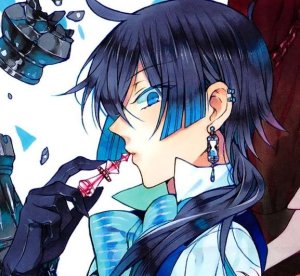This is the type of jdrama that I love: cozy, domestic, homemade food-filled: those that feel like a warm hug coming home.
The lives of Maikos and Geikos have often been represented by external gazes, and they were done wrong many times by international eyes who saw in them what they wanted to see rather than what was there. This drama has the ability to showcase a traditional practice in a day-to-day setting, letting us see the domesticity, the relatable bits, the inner story of a Maiko house.
This is less about painting a grandiose image and more about showcasing daily lives, with the core of the story being two friends from Aomori (Kiyo and Sumire) who decide to move at age 16 to become Maiko. However, and very early on, Kiyo finds herself in a different journey, the one that gives the title to the drama: she discovers the role of a Makanai, a cook who prepares home-made meals for those who work in the house (and maybe also, through that, provides unconditional love and support).
With a masterful grace similar to dramas like Kinou Nani Tabeta? and Shinya Shokudo (and, less successfully, others like Lunch no Akko-chan or Ando Natsu), this drama is successful in writing the complex through simplicity and narrate a compelling story (in this case, a coming of age story) in a setting that is inviting, welcoming and that has inspiring cooking scenes.
The relationship in the center is the friendship between Kiyo and Sumire, which is incredibly refreshing to see. I'm very thankful for dramas that have come out of late which allow for more than just romance in its core. Still, there are a lot of characters with their own journeys (successful Geikos with life crisis, retired ones who deal with balancing their blood family and their work family, old apprentices who struggle, new apprentices who also do, retired Geikos who come back, family members of people in the house who don't share the traditions, etc.).
The only critique I'd give is that some elements of narrative tension, some thing that seemed would go somewhere, didn't quite have the space to develop. I can only hope that this is like Shinya Shokudo and we get more of it, but only time and people's engagement will tell.
If you're looking for a fast-paced, action-packed, tragedy-filled drama, this one isn't it. But if you're looking for a relaxing, domestic, coming-of-age drama with traditional elements and amazing food, a drama that you can come home to, then give this one a chance.
The lives of Maikos and Geikos have often been represented by external gazes, and they were done wrong many times by international eyes who saw in them what they wanted to see rather than what was there. This drama has the ability to showcase a traditional practice in a day-to-day setting, letting us see the domesticity, the relatable bits, the inner story of a Maiko house.
This is less about painting a grandiose image and more about showcasing daily lives, with the core of the story being two friends from Aomori (Kiyo and Sumire) who decide to move at age 16 to become Maiko. However, and very early on, Kiyo finds herself in a different journey, the one that gives the title to the drama: she discovers the role of a Makanai, a cook who prepares home-made meals for those who work in the house (and maybe also, through that, provides unconditional love and support).
With a masterful grace similar to dramas like Kinou Nani Tabeta? and Shinya Shokudo (and, less successfully, others like Lunch no Akko-chan or Ando Natsu), this drama is successful in writing the complex through simplicity and narrate a compelling story (in this case, a coming of age story) in a setting that is inviting, welcoming and that has inspiring cooking scenes.
The relationship in the center is the friendship between Kiyo and Sumire, which is incredibly refreshing to see. I'm very thankful for dramas that have come out of late which allow for more than just romance in its core. Still, there are a lot of characters with their own journeys (successful Geikos with life crisis, retired ones who deal with balancing their blood family and their work family, old apprentices who struggle, new apprentices who also do, retired Geikos who come back, family members of people in the house who don't share the traditions, etc.).
The only critique I'd give is that some elements of narrative tension, some thing that seemed would go somewhere, didn't quite have the space to develop. I can only hope that this is like Shinya Shokudo and we get more of it, but only time and people's engagement will tell.
If you're looking for a fast-paced, action-packed, tragedy-filled drama, this one isn't it. But if you're looking for a relaxing, domestic, coming-of-age drama with traditional elements and amazing food, a drama that you can come home to, then give this one a chance.
Esta resenha foi útil para você?





















